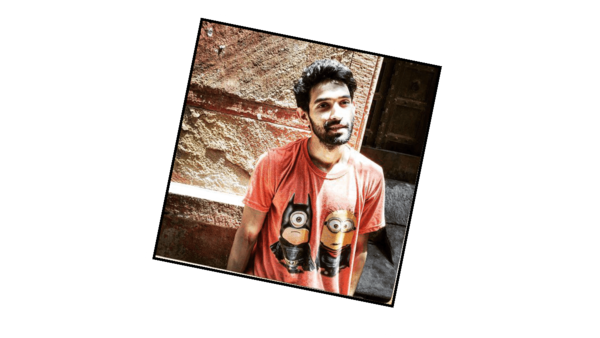The Vikrant Massey Moment: The Actor's 'Retirement' Caps An Intriguing 2024
It’s rare for an actor of Massey’s slight built and sleek demeanour to find the kind of national acclaim that he has, in the medium that he has.

Last Updated: 06.52 PM, Dec 02, 2024
This column was originally published as part of our newsletter The Daily Show on December 2, 2024. Subscribe here. (We're awesome about not spamming your inbox!)
***
2023 was the year of staggering box-office successes, the triumphant return of Shah Rukh Khan, and the emergence of maximalist Hindi cinema… the latter of a kind whose imprint will ultimately crystallise as a transformative moment in cultural history — a shift towards the masculine, the thickening of the skin and the hardening of the heart. Towards the tail end of the year, though, there was the anomaly of the comparatively understated and ragged 12th Fail. On paper, a retour of the rags-to-riches story we’ve encountered a million times over, it rallied to our ears and eyes, an affecting canvas of resilience and humility. Unlike other box-office highs of the year, 12th Fail didn’t quite explode. It graduated. From rumour to cuddled secret, from recipe to lab-tested delicacy, from anecdote to the unravelling of a secret cult. The cult of a life-affirming film. And with it the cult of the sincerity of Vikrant Massey — the actor and the person. The former has now retired at the age of 37. Or has he?
Massey’s breakthrough moment came in 2023, but it has gradually built into a crescendo of intrigue, ingenuity, and at times bafflement, over the course of 2024. Massey followed up 12th Fail with the forgettable but feisty thriller Blackout; the notable but ultimately wasteful Phir Aayi Hasseen Dillruba; a riveting, disturbing turn in the underappreciated Sector 36; and bowed out with an abrupt right turn in the hotly debated The Sabarmati Report. His work aside, it’s Massey’s approach to his newfound fame that has taken a prosaic, yet fascinating life of its own. From a distance it looks like this cloud of simplicity, a vocational contradiction that attests to his image of the anti-celebrity. Up close, it feels cleaved, tailored and put together. Seasonal, but arresting nonetheless.

It’s rare for an actor of Massey’s slight built and sleek demeanour to find the kind of national acclaim that he has, in the medium that he has. For one thing, it has neither been sudden nor achieved overnight. Massey has occupied the backdrop of plenty of projects that have flourished without lifting him. Consider the resounding success of Mirzapur, the courageous supporting act to Chapaak, and the wider assembly of notoriety in Haseen Dilruba. Neither drew people to Massey like the role that pulls from his feebleness, his withdrawn nature and his lack of likeness to a leading man from the history of Hindi cinema. To which effect, his turn in Vidhu Vinod Chopra’s film, the crutched conscience of Manoj (the real life character he plays in the film), his foundational paralysis echoes his own little journey to the summit of notability. It’s rare for someone like him to find this sort of recognition. It’s rarer for their shadow to be deepened by who they are off the screen.
In February, Massey’s interview with Samdish Bhatia took over the internet. He spoke of raising a multi-religious household, of secularism as a default human condition, the nuisance of social media, equality, caste consciousness, of learning from role models you get to play, leaving TV acting because it had become ‘misogynistic’ and so on; in essence everything righteous that a team of woke advisors could put together as raison d'etre for an artist’s purview. This concoction of decency, extraordinary kindness and empathy felt awkward at first but linked to the gentleness of Manoj, the character he played in 12th Fail, it seems like the receding brush stroke of a portrait being made in public view. Where does the film end and the rest of life start? When does performance begin to seep into personality? In a world full of loud, emphasised presences, it feels like a stellar act of integration.

Massey was exceptional in Netflix’s Sector 36 — his standout work from the year — as a hedonistic, morally bankrupt serial murderer of children, who rationalises (with eerie elegance, mind you) his brutality. A roughly 18-minute interrogation sequence from the film would qualify as the most disturbing viewing experiences of the year. To the unsettling ease with which Massey pulls off this barbarian there were, of course, interviews about the psychological toll of enacting the role while contemplating and conducting fatherhood. Think of the performance in isolation and it feels stark, intense. Think of it in the wider context of Massey’s softness, his pronounced worldview and it feels even more unlikely and brave. As if the artist’s personality, the parable of his existence supplies depth to the gashed, wounded texture of his many ‘difficult’ performances. It’s not unusual, but it’s also unfamiliar for a film culture that establishes stardom first and builds folklore later. Here the lore seems to be multiplying first.
To this wild but curious cycle of etching a character in the conscience of the public, Massey’s last notable film of the year, has proven his trickiest wicket. The Sabarmati Report, for all of its debatable politics, presents the most abrupt right turn anyone has ever taken from the edge of a momentous ridge. The man who spoke of honing a multi-religious household has suddenly stepped up to speak of Hindu sentiment, the scourge of historical wrongs, cultural subjugation and the farming of anti-Hindu untruths. The shift has been so visceral and steep in its noise value, it feels like a morbid argument against the actor’s previously furnished self-image of altruism.
Massey has predictably come out fighting… or in his unique case, offered a polite ripple of counter arguments. It begs the question of separating performance from perception and the idea of cautiously, or carelessly using one to build the other. If nothing else, it makes the Massey-fication of Hindi cinema and celebrity, its crossed wires of hidden lives and opulent realities that much more intriguing to witness. Compared to the clattering, shiny, inaccessible disposition that stardom stands for, Massey’s rise feels like it has been refreshingly attained by walking the strictest of middle-paths. Even the sudden announcement of his retirement feels like a small, unmasked portion of a wider portrait he is working on in secret.
